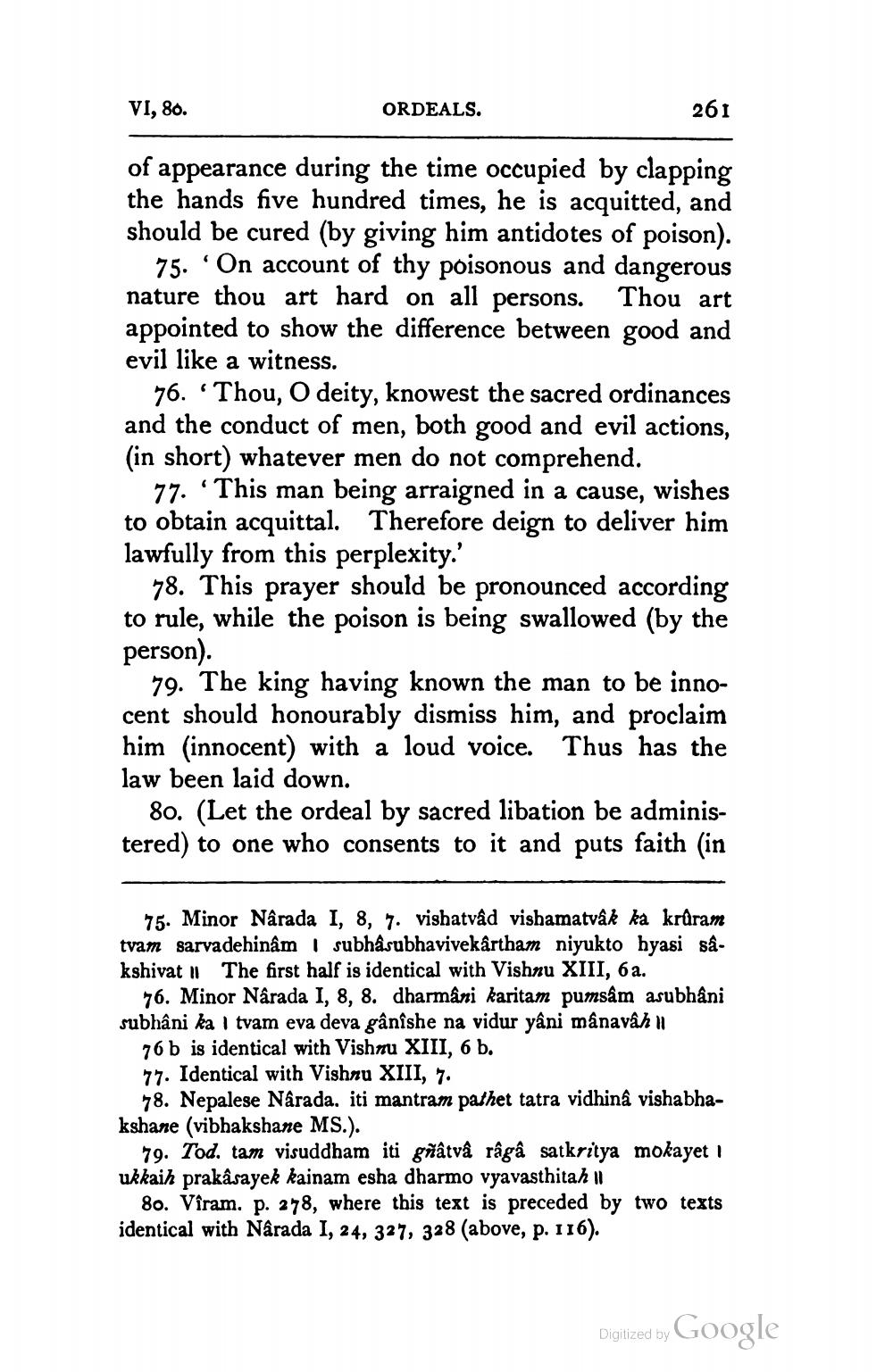________________
VI, 80.
ORDEALS.
261
of appearance during the time occupied by clapping the hands five hundred times, he is acquitted, and should be cured (by giving him antidotes of poison).
75. On account of thy poisonous and dangerous nature thou art hard on all persons. Thou art appointed to show the difference between good and evil like a witness.
76. “Thou, O deity, knowest the sacred ordinances and the conduct of men, both good and evil actions, (in short) whatever men do not comprehend.
77. 'This man being arraigned in a cause, wishes to obtain acquittal. Therefore deign to deliver him lawfully from this perplexity.
78. This prayer should be pronounced according to rule, while the poison is being swallowed (by the person).
79. The king having known the man to be innocent should honourably dismiss him, and proclaim him innocent) with a loud voice. Thus has the law been laid down.
80. (Let the ordeal by sacred libation be administered) to one who consents to it and puts faith (in
75. Minor Nârada I, 8, 7. vishatvad vishamatvâk ka krůram tvam sarvadehinâmi subhâsubhavivekârtham niyukto hyasi sakshivat II The first half is identical with Vishnu XIII, 6a.
76. Minor Narada I, 8, 8. dharmâni karitam pumsâm asubhâni subhani ka i tvam eva deva gânishe na vidur yâni mânavah 11
76 b is identical with Vishnu XIII, 6 b. 77. Identical with Vishnu XIII, 7.
78. Nepalese Narada, iti mantram pathet tatra vidhina vishabhakshane (vibhakshane MS.).
79. Tod. tam visuddham iti gñâtvå râgâ satkritya mokayeti ukkaih prakâsayek kainam esha dharmo vyavasthitah Il
80. Vîram. p. 278, where this text is preceded by two texts identical with Narada I, 24, 327, 328 (above, p. 116).
Digitized by Google




